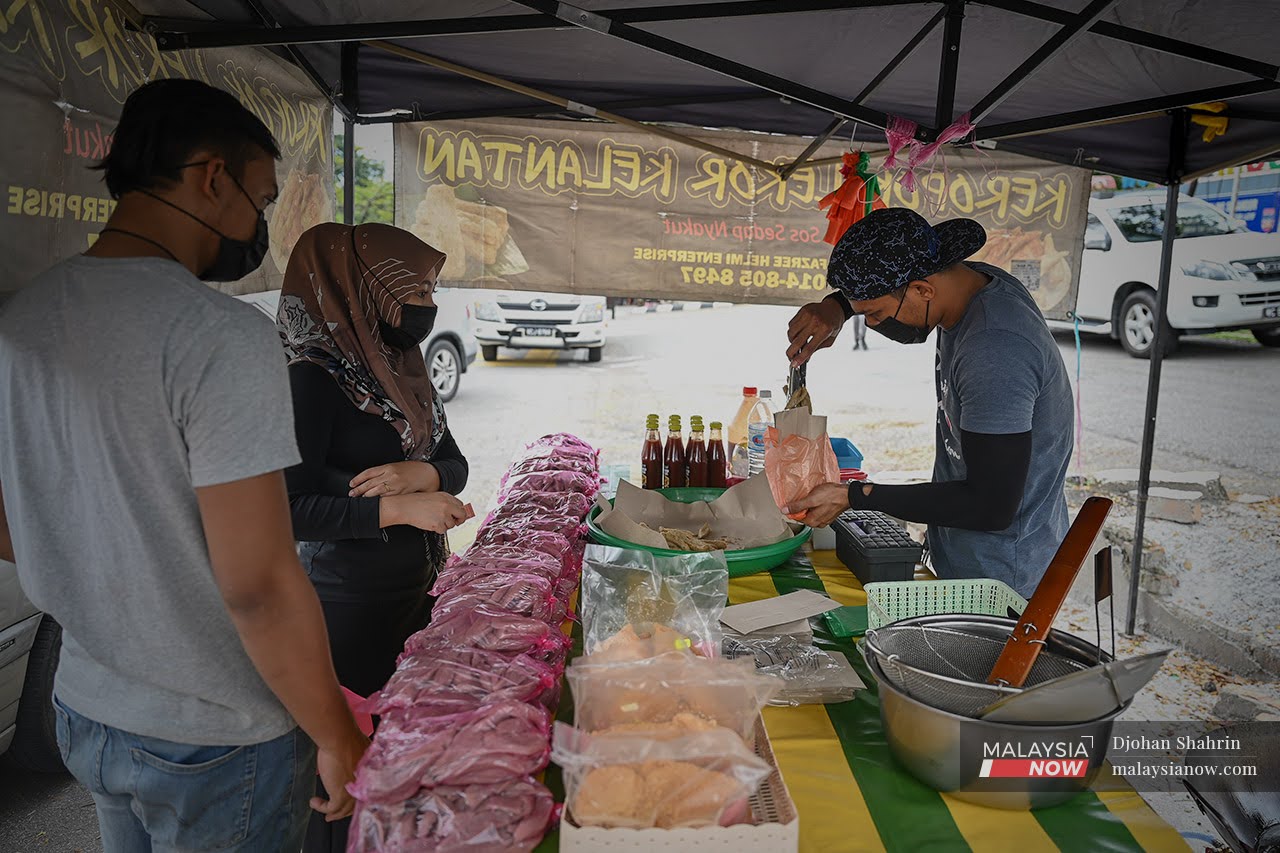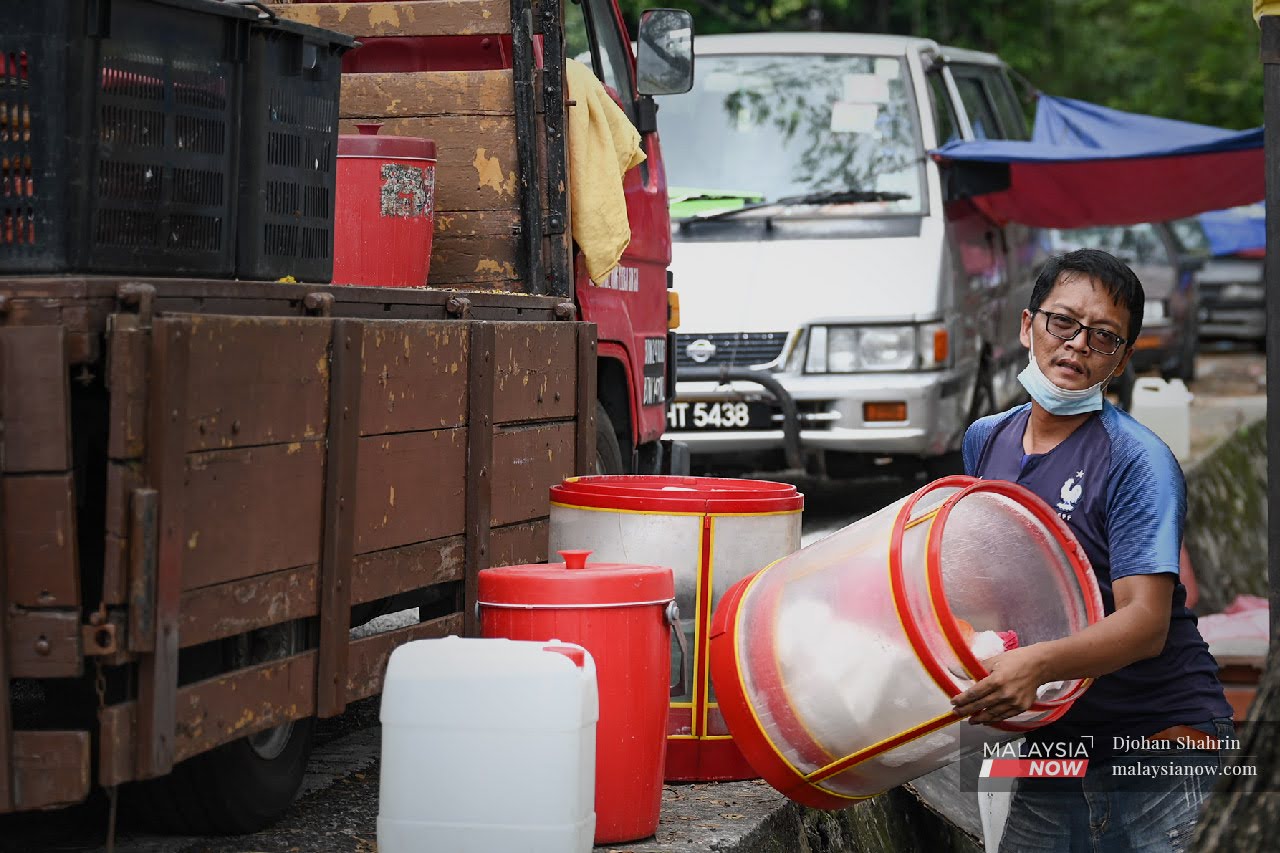KL’s ‘free trade zones’ a lifeline for those struggling to get by
Many traders who lost their previous jobs due to the Covid-19 pandemic say they have benefited immensely from the government's permission to conduct business in these areas.
Just In
Fazrul Shahril used to work at a leading hotel in the capital city, but the Covid-19 pandemic changed everything.
With the economy hard hit by the effects of the virus, he eventually found himself without a job.
He would usually begin his day at 6am, working as part of the hotel’s support staff, but once the first movement control order (MCO) was implemented last year, he was forced to spend his days cooped up in his rented home.
Alone, he spent much of his time thinking about what uncertainties lay ahead.
But he refused to admit defeat.
Dipping into his savings, he withdrew enough to open a stall at the side of the road selling keropok lekor.
Fazrul is now one of many who have set up shop in the heart of the city with permission from the Kuala Lumpur City Hall (DBKL).
Aspiring traders were given the green light in November to open stalls or small businesses at appropriate locations.

“I know these are hard times for everybody,” the 25-year-old said when met at his stall near the main gate of Sekolah Menengah Sains Selangor in Bandar Tun Razak.
“Everyone is struggling and there aren’t a lot of jobs out there. But by selling keropok lekor like this, I can make enough to survive.”
The Covid-19 pandemic which hit Malaysian shores early last year has so far claimed 555 lives with 138,224 confirmed cases throughout the country.
Yesterday, Prime Minister Muhyiddin Yassin announced that the MCO would be reinstated for two weeks in Penang, Selangor, the Federal Territories, Melaka, Johor and Sabah which have seen a rise in number of daily cases.
Federal Territories Minister Annuar Musa said in November that Kuala Lumpur would become a “free trade” area for those looking to set up businesses on a small scale. He said such businesses could be established in suitable locations as long as individuals obtained a temporary licence for DBKL’s records.

But for Fazrul and others like him, the go-ahead to set up stalls and petty businesses has been a lifeline as the economy continues to reel from the impact of the pandemic.
Fazrul’s shop is only four months old, but he has received encouraging support from the public.
Other stalls have seen a similar response from people who flock to buy their snacks and goods, especially in Bandar Sri Permaisuri, Kampung Pandan, Masjid Jamek and Wangsa Maju.
Such developments have been hailed by residents and local workers alike.
Ismahani Omar, a nurse at Universiti Kebangsaan Malaysia’s Specialist Children’s Hospital, said she used to have to drive all the way to the food court at Bandar Tasik Permaisuri to buy food.
But now, she can choose from any number of stalls along Jalan Yaacob Latiff.
“This has made life much easier for my colleagues and I,” she told MalaysiaNow.
“It’s even easy to pick up our children from their daycare. We don’t need to look for fast food as everything is already here, right in front of the hospital.”
And it’s not just those who lost their jobs who have found a way to survive. Night market vendors looking to try their luck somewhere new have also flocked to these areas.

Mazeri Mustapa has been a night market vendor for more than 20 years now. The 38-year-old told MalaysiaNow that the government’s announcement had saved him after the market where he sold drinks and snacks was ordered to close down throughout the MCO period from March to June last year.
He began afresh with a roadside stall, which gave him a new and different perspective of work.
“I’ve been doing all right,” he said, adding that response to his stall has been good so far.
“I think this was a good move by the government because we traders have no fixed income. We just have to open for business every day.”
When asked about the government’s guarantee that business could be conducted without a licence, both he and Fazrul said there had been no trouble from the authorities.
“The authorities come in their lorries and I assume they are here to shut us down – but they’re really here to buy drinks from me,” vendor Marshila Amir told MalaysiaNow.
When asked about the return of the MCO in several states, many traders said the move was for the good of the people.
“But I hope the exemption (from having a licence) and permission to run our business like this will continue until we can recover and the economy is back to normal,” Fazrul said.
Subscribe to our newsletter
To be updated with all the latest news and analyses daily.



